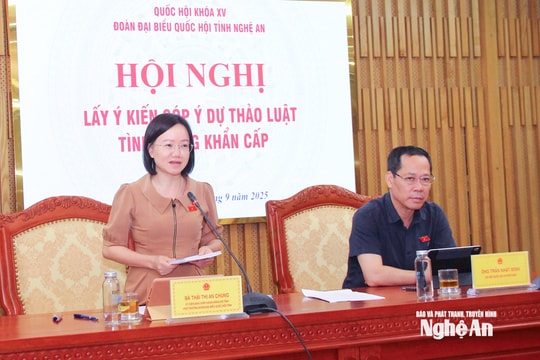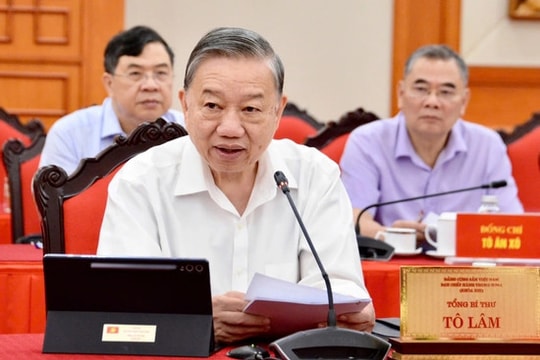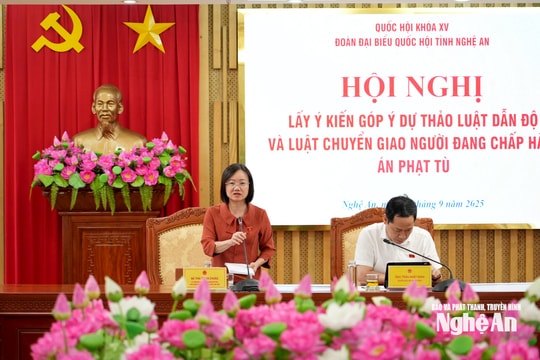National Assembly delegates of Nghe An province pointed out three subjects that need attention when amending the law.
(Baonghean.vn) - Giving opinions on the draft Law on Vietnamese Workers Working Abroad under Labor Contracts, delegate Nguyen Thanh Hien - Deputy Head of the National Assembly Delegation of Nghe An Province emphasized that three subjects that need to be noted when amending the law are state management agencies, the role of enterprises and workers...
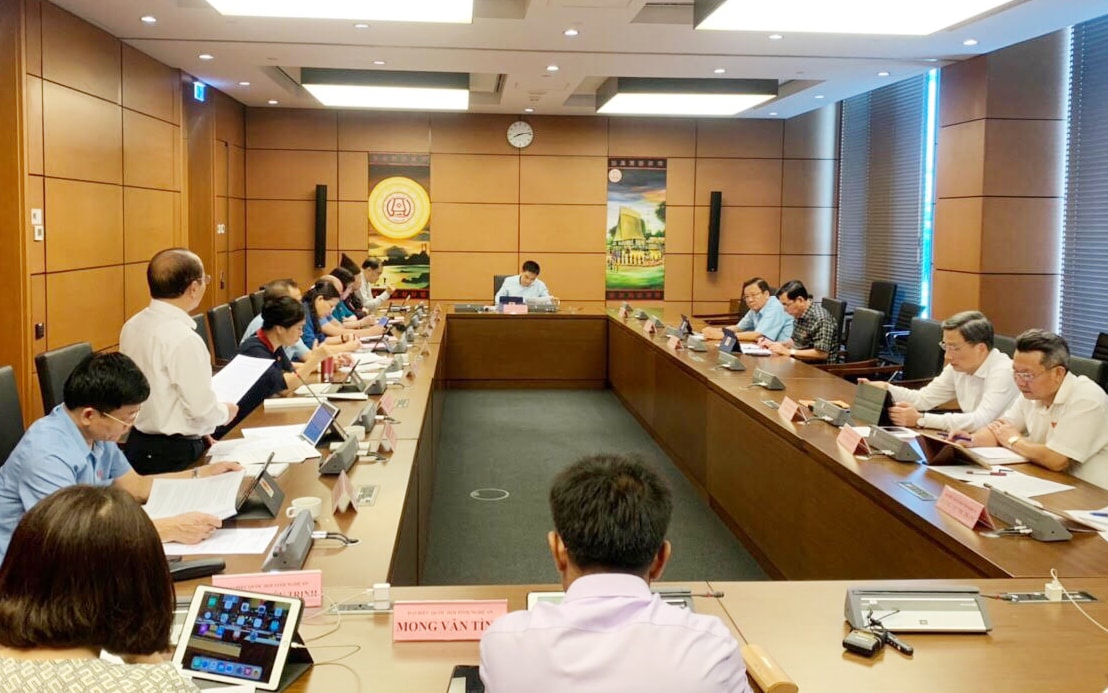 |
| On the morning of June 10, the delegations of National Assembly deputies from Nghe An, Quang Ninh and Hau Giang participated in group discussions on the following contents: Draft Law on Vietnamese Workers Working Abroad under Contract; Draft Law on Amending and Supplementing a Number of Articles of the Law on Administrative Violations, and Draft Law on International Agreements. Photo: PV |
Giving opinions on the draft Law on Vietnamese Workers Working Abroad under Labor Contracts, delegate Nguyen Thanh Hien - Deputy Head of the National Assembly Delegation of Nghe An province said,Vietnamese workers abroad have helped to eliminate hunger and reduce poverty, and many localities have built new rural areas. However, according to delegate Hien, in reality, there are still many shortcomings. Especially the situation of fraud, brokers, poor management of Vietnamese workers abroad, and the situation of Vietnamese people violating the law, running away, not returning... causing some countries to not accept workers from many localities such as Korea.
According to Mr. Hien, the three subjects that need to be noted when amending the law are state management agencies, the role of enterprises and labor on the basis of doing well, transparently publicizing specific regulations, and protecting and managing laborers well.
In addition to contracted workers, there should be legal provisions for free-moving workers working within ASEAN without contracts.
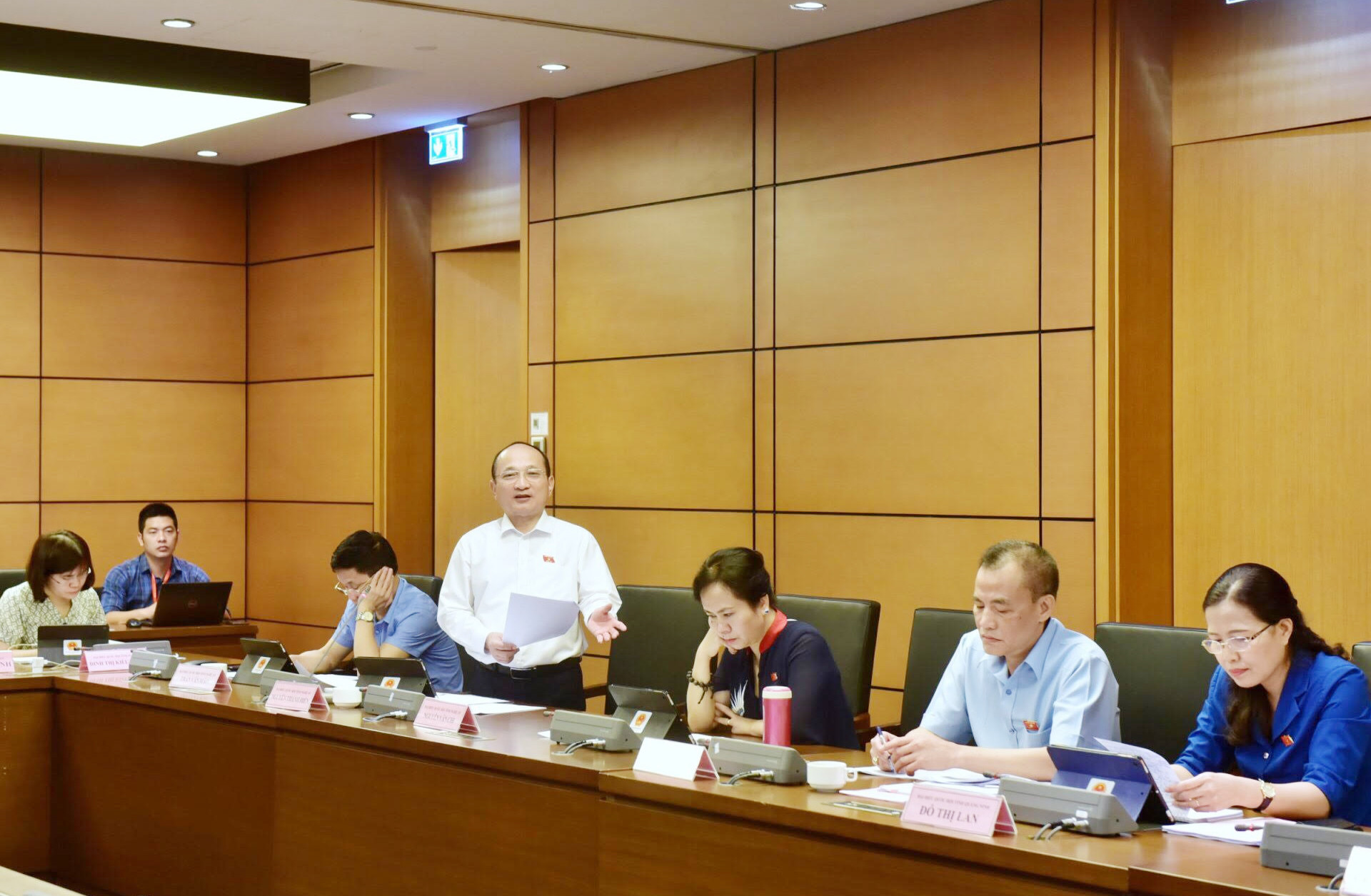 |
| Delegate Nguyen Thanh Hien - Deputy Head of the National Assembly Delegation of Nghe An province gave comments at the group discussion session. Photo: PV |
Emphasizing that the support policy for workers is not only training before going to work, Mr. Hien said that it is necessary to pay attention to the workers after returning home, including building a database of workers working in the markets, training majors, and recognizing skills so that when workers return, they can receive advice. Innovative start-up businesses need a credit support mechanism.
Regarding the Draft Law amending and supplementing a number of articles of the Law on Handling of Administrative Violations, delegate Tran Van Mao - Deputy Head of the National Assembly Delegation of Nghe An province was interested in the contentnPrinciples of handling administrative violations. Although it has been amended and supplemented at Point 2, Clause 1, Article 1 of the draft law. However, through research and comparison with Point b, Clause 1, Article 10 of the current Law and practical application, this amendment is still not really clear, has not resolved the contradiction on the principles of handling administrative violations stipulated in Clause 1, Article 3 of the Law on Handling Administrative Violations and regulations onaggravating circumstancesat point b, clause 1, Article 10.
Specifically, that is:“Repeated administrative violations; recidivism”; that is, the same violation occurs at many different times, but has not been detected, until the violation is caught red-handed with evidence, the violation is discovered, then the penalty will be imposed once and aggravating circumstances will be applied; meanwhile, the principle of administrative violation penalty, at point d, clause 1, Article 3 of the Law stipulates:“Administrative violations are only punished when there is an administrative violation as prescribed by law. An administrative violation is only punished once.”.
Thus, in the case of multiple violations at different times, the administrative penalty is imposed according to the provisions in Point b, Clause 1, Article 10 or the violation is imposed according to the time the violation occurs according to the provisions in Point d, Clause 1, Article 3. The above unclear provisions lead to confusion among the competent authorities and persons in charge of making decisions on penalties when applying the law.

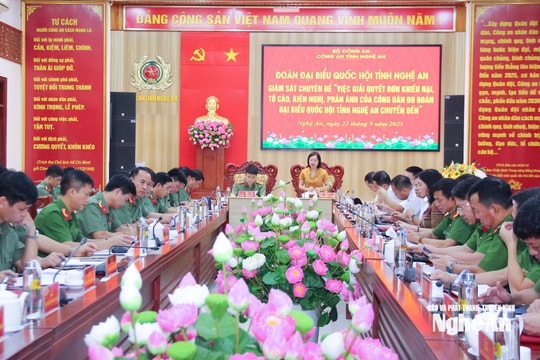
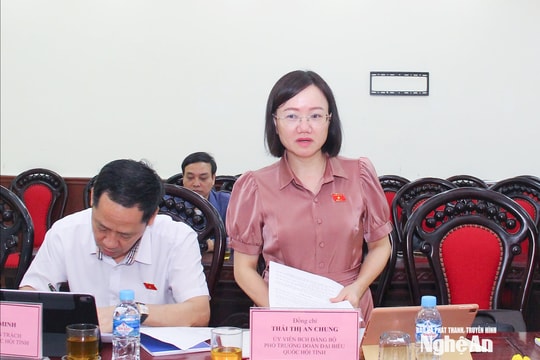

.jpg)
